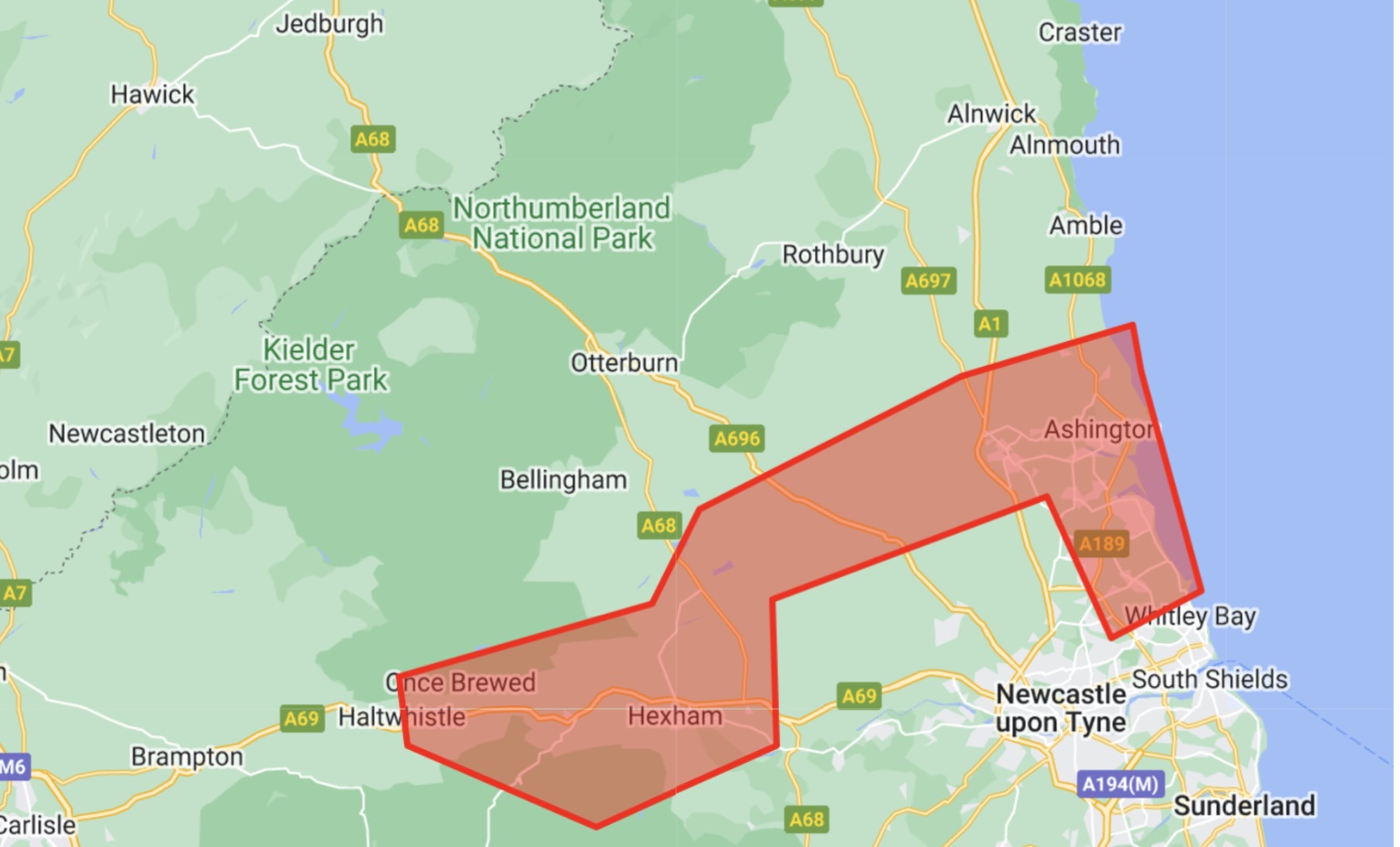
As an additional reminder that you can’t make everyone happy – especially in this divided, frequently infuriated world – a UK medical drone delivery project has come under considerable fire for its efforts to seek prolonged flight restrictions across an expanse of airspace that locals say would effectively shut down local air traffic.
As DroneDJ reported in when it began last February, specialized medical UK drone delivery startup Apian Aero conducted a five-month series of trial flights transporting patient test samples, medicines, and supplies between Northumbria Healthcare NHS Foundation Trust facilities.
The tests partnered with UAV infrastructure and drone services company Skyports, and is one of the proliferating experiments around the world to improve and speed healthcare results using small, often automated aircraft to replace slower-moving ground transport.
Under its request to regulators, Apian is seeking an extension of the flight zone restriction for the second phase of the trials slated to start this month.
Read: Consortium in Scotland gets funds for medical drone delivery network
Though nobody has any problem with the added effectiveness drone deliveries can provide hospitals and clinics worldwide, effort by Apian to prolong designation of the test airspace above coastal northeast England’s Northumbria region has local fliers hopping mad. They say it will effectively ban other aircraft from flying below 600 feet – and in some places as high as 2,000 feet – across a large area north of Newcastle spanning inland out to the sea.
According to an owner of one of the two airfields serving small aircraft owners, Apian’s petition to extend the airspace restrictions for delivery drone operation would make the entire area a de facto no-flight zone to other operators.
“The whole thing is a massive airspace grab and is obviously going to affect a lot of pilots and put our airstrip out of action,” the unnamed owner told the BBC, noting the grassy field used by local aircraft is critical to making his property viable. “It’s a small farm, it has to diversify to survive, and that’s one of our main sources of diversification.”
As part of its request to regulators, Apian has submitted the details of it and is awaiting comment and criticism to it. That input period ends Septmber 22, when authorities will review the proposal.
However they decide, the tussle has already taken on tones resonant in conflicts elsewhere in the world when smaller businesses and communities begin fighting activity by venture capital-backed tech companies and their avowedly “disruptive” applications.
Apian has been involved in indisputably humane, life-improving innovations in recent years – including the first regular drone delivery flights of chemotherapy treatments to the Isle of Wight. This time, though, its motives and methods are being denounced by opponents as seeking to snatch airspace for limited-sized payloads that are already just as easily and quickly transported by ground options.
Read more: Isle of Wight to test drone deliveries of chemotherapy
Also angering detractors is the £799,000 ($991,000) in public funds Apian received as part of the Northumbria Healthcare testing contract. Even leading UK aviation magazine Flyer – which covers both legacy and next-generation aircraft and innovation – has spoken out against further closing of the disputed airspace for further drone delivery trials, at least under its current form.
“We’re not against progress, far from it, but creating chaos with taxpayer funds is not the way to go about developing a new worthwhile business,” Flyer said in a recent editorial. “Most urgent supplies can be delivered quickly and efficiently by motorcycle couriers… If the Apian Northumbria NHS Air Grid does go ahead, let’s make sure the benefits and costs are really measured and compared with existing systems.”
Given the equal measures of determination, self-interest, public good, income, and – thankfully – good faith on both sides, the ultimate resolution of the Northumbria dispute may provide a blueprint for future disagreements over disruptive innovations affecting communities around the globe.
FTC: We use income earning auto affiliate links. More.



Comments